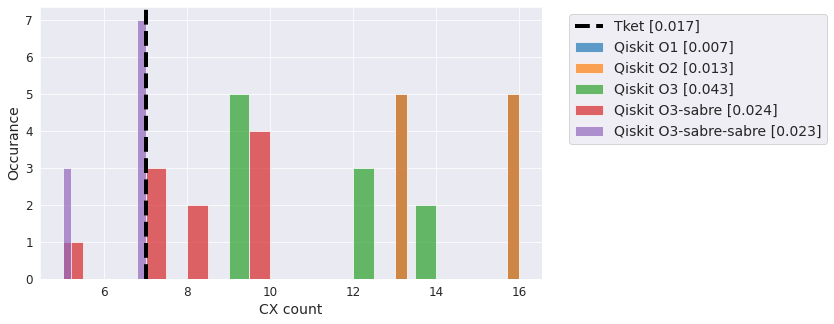Posts in Qiskit
Choosing the best Qiskit swap mapper
- 31 October 2021
One of the most important (perhaps the most important) steps when compiling quantum circuits for architectures with limited connectivity is swap mapping. If a requested two-qubit gate cannot be implimented directly on hardware, the states of the corresponding qubits must be swapped with those of their neighboors until the states reside on qubits where a two qubit gate is supported. Swap gates are expensive, equal to three CNOT gates, and therefore moving qubit states around using the fewest number of swap gates is desireable. Unfortunately, directly computing the minimum number of swap gates is NP-complete, and heuristics need to be developed that come close to the ideal solution while scaling favorably with the number of qubits.
Qiskit supports a variety of swap mappers and other optimization settings, and how to best set these options is important for getting high-fidelty results. Additionally, there are other Qiskit compatible compilers out there that should also be evaluated. To this end, here we look at a selection of circuits compiled with various Qiskit compiler settings, as well as those produced with the Cambridge Quantum Computing (CQC) Tket compiler. We will investigate the performance of these methods in terms of both number of CNOT gates in the output, as well as the associated runtimes. Because Qiskit swap mappers are stochastic, we will run each one several times and plot the distributions of results.

